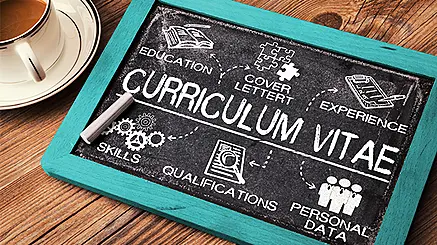Eight Tips For Creating A Successful Graduate CV

Landing that first job out of college can be a difficult task. You have to sign on to Job Seekers and spend your free time apply for position after position until you begin to forget what you are applying for or more importantly the type of role you are looking for. Out of these jobs, the majority you never hear from again or you get that generic rejection email that they will not be proceeding with your application due to more suitable applicants for the role.
Stop and take a step back. A simple CV refresh could be just what you need to land more interviews.
Drawing on our own experience as Graduates, here are our eight tips for creating a successful Graduate CV:
1. Create your CV on Canva to stand out
Employers will be inundated with CVs so it's important that your CV grabs their attention straight away. Canva is a graphic design tool website that has a lot of free templates that you can choose from. These templates range from basic designs that can be adapted for any profession to ones that are more targeted to design professions. One of the more basic designs that can be easily adapted is the Periwinkle Minimalist Corporate Resume below.
Periwinkle Minimalist Corporate Resume by Deirdre
2. Include a Professional Profile Statement at the start of your CV
A professional profile statement should be a few lines at the start of your CV to summarise the key take home you want to highlight to the prospective employer. A good professional statement should grab prospective employers attention and highlight key strengths, areas of expertise and career goals.
3. Get a friend to proofread your CV for an objective second opinion
For some people, it goes against that grain to write a document with the objective of selling yourself. Get a friend to have a look at your CV. There could be areas that you are underselling yourself or achievements you may have overlooked. It also helps to have a friend proofread your CV to spot any errors, typos or formatting issues. Even those with the most acute attention to detail can miss things on their own CV.
4. Format your CV
A simple but important one. A clear and organised layout is crucial. A CV which is poorly formatted looks messy and disorganised which is discouraging to potential employers. You need to also consider what format you are sending your CV. Think about how your CV will be viewed and ensure it looks well on screen as well in print.
5. Read the Job Specification and adapt your CV for specific roles
Despite it being the holy grail of what not to do when applying for jobs, people still insist out sending out mass CV's and not adapting them to the roles their applying for. You need to be able to make it as simple as possible for a potential employer to scan through your CV and easily tick off that you have the relevant skills and experience for the role.
6. Get in touch with some within the role or company to find out more about the day to day of the position
This might be more relevant to when you have landed an interview, but it's a great idea to reach out to someone on LinkedIn who has previously worked in a role or currently works in the company you are interested in. This shows that you are proactive. It also gives you some real insights into the day to day of the position you are applying for.
7. Don't waffle and proofread, proofread and proofread some more
Make sure your CV is clear and concise. Avoid waffling by condensing your sentences down and remove any unnecessary words. For work experience, you don't need to add every bit of work experience like that Super Valu you worked in for a week in Summer 2014. Highlight the experience that is relevant to the role.
8. Know your CV
Finally, your CV is what you will be questioned on in an interview. Consider this when you are writing your CV and prompt some of the questions that you might be asked.
We hope these tips help with refreshing your CV. The most important thing to remember is not to feel discouraged when you are told that you gave a great interview however they went with someone with more experience. This is common feedback to hear. Once you land your first graduate job you are on the career ladder and the only way is up.
Happy job hunting.